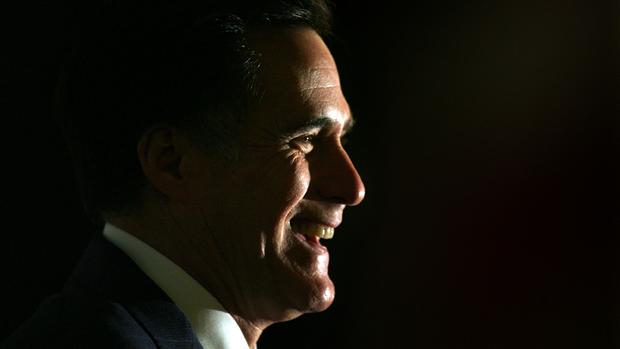Why Michigan was so close, and how Romney won
Mitt Romney won a narrow victory in his birth state of Michigan on Tuesday, overcoming efforts by the Santorum campaign to get registered Democrats to the polls to vote against him. The CBS News exit poll of Michigan Republican primary voters revealed an electorate divided along many of the same lines as found in other states - by ideology, income, evangelicalism, and residential location. But Romney's perceived economic prowess and electability ultimately enabled him to prevail.
Full Michigan results
Michigan exit poll
Party Crashers
Michigan has an open primary meaning that voters of any affiliation could cast a ballot in the state's Republican primary. The Santorum campaign sought to exploit this rule by contacting 50,000 Democratic voters through emails and robocalls and encouraging them to derail Romney's campaign by turning out and voting for Santorum in the election. The exit poll shows that the ploy nearly worked.
Nearly 1-in-10 voters in the Michigan Republican primary identified with the Democratic Party. These Democratic voters overwhelmingly supported Santorum, casting 53 percent of their ballots for him while awarding only 17 percent to Romney. By comparison, Romney defeated Santorum among the 59 percent of Republicans casting ballots by a margin of 48 percent to 37 percent and independents by a margin of 35 percent to 34 percent. If the Democrats had not crossed over and voted in the Republican contest, Romney would have won the Michigan Republican primary by 8 percentage points, in the process changing the characterization of the result from a close race to a comfortable victory.
Typical Demographic Divides
Party crashing aside, the demographic divisions that have characterized past Republican nomination contests emerged once again in Michigan. Michigan voters split along ideological lines. Santorum soundly defeated Mitt Romney among very conservative voters 50 percent to 36 percent. Romney, on the other hand, easily topped Santorum among somewhat conservative voters 50 percent to 32 percent. Among moderate to liberal voters, Romney edged Santorum 39 percent to 33 percent.
The evangelical gap that had popped-up in states such as Iowa and South Carolina emerged again among Michigan Republican primary voters. Voters describing themselves as evangelical or born-again Christians supported Santorum 51 percent to 35 percent. On the other hand, voters who were not evangelical Christians supported Romney 45 percent to 30 percent.
Finally, there was a geographical divide. Voters living in urban areas with populations over 50,000 preferred Romney to Santorum 46 percent to 32 percent. On the flip side, voters living in small towns and rural areas preferred Santorum to Romney 43 percent to 34 percent. Voters in suburban communities were largely split, favoring Romney over Santorum by a 43 percent to 37 percent margin.
Full Republican delegate scorecard
Nationwide primary results so far
Economy The Top Issue
Romney was able to surmount these divisions by being the preferred choice on the most important issue to voters. A majority of Michigan Republican primary voters - 52 percent - indicated that the economy was the issue that mattered most in their candidate choice, easily topping the national deficit and abortion, which were named respectively by 24 percent and 13 percent of voters. Amongst voters prioritizing the economy, Romney soundly defeated Santorum 47 percent to 30 percent.
Those voters who had been most adversely affected by the downturn in the economy preferred Romney to Santorum in Tuesday's primary. Nearly a third of the electorate - 31 percent - have had a family member laid off in the last three years. Among those voters who have witnessed unemployment firsthand, Romney was preferred to Santorum 42 percent to 36 percent. This margin was 3 times larger than Romney's advantage among voters who did not see someone from their household laid off in the last three years.
Analysis: Mitt Romney avoids a Michigan disaster
Romney in Michigan: "We won by enough"
Electability Most Valued Candidate Trait
Electability was the most valued candidate trait in the Michigan Republican primary as it has been in all the preceding contests. A third of primary voters indicated that the ability to defeat Barack Obama was the candidate quality that mattered most in their vote choice, while 24 percent of voters cited strong moral character, 22 percent cited experience, and 16 percent cited being a true conservative. Of those who said beating Obama was their most valued candidate trait, a whopping 61 percent voted for Romney, compared to only 24 percent who supported Santorum.
Moreover, when voters were asked which candidate they perceived as the most electable, regardless of whom they supported, they overwhelmingly chose Romney. Fifty-three percent of Michigan Republican primary voters indicated that Romney is the most likely Republican candidate to defeat Obama in November. Only 26 percent thought Santorum has a better chance of winning the presidential election.
Poll results discussed in this article are based on a National Election Pool exit poll conducted by Edison Media Research. Interviews were conducted with 2200 Republican primary voters as they exited precincts around Michigan. The margin of error for the poll is +/-4 percentage points.
Arizona exit poll
Full Arizona results

